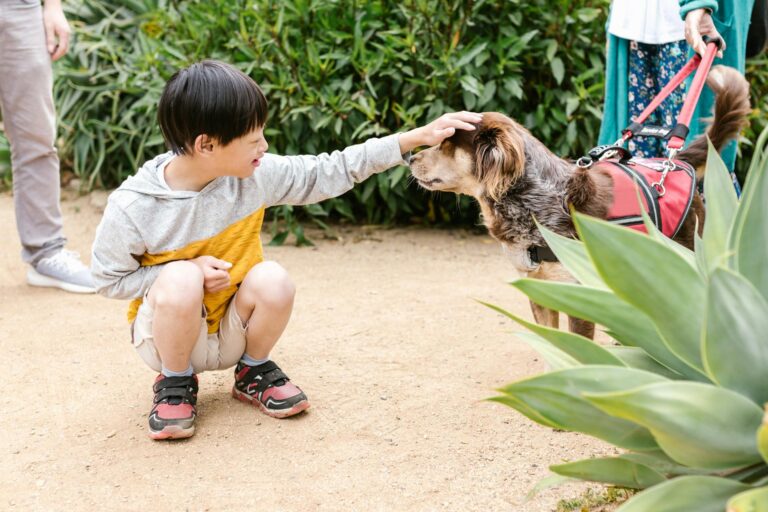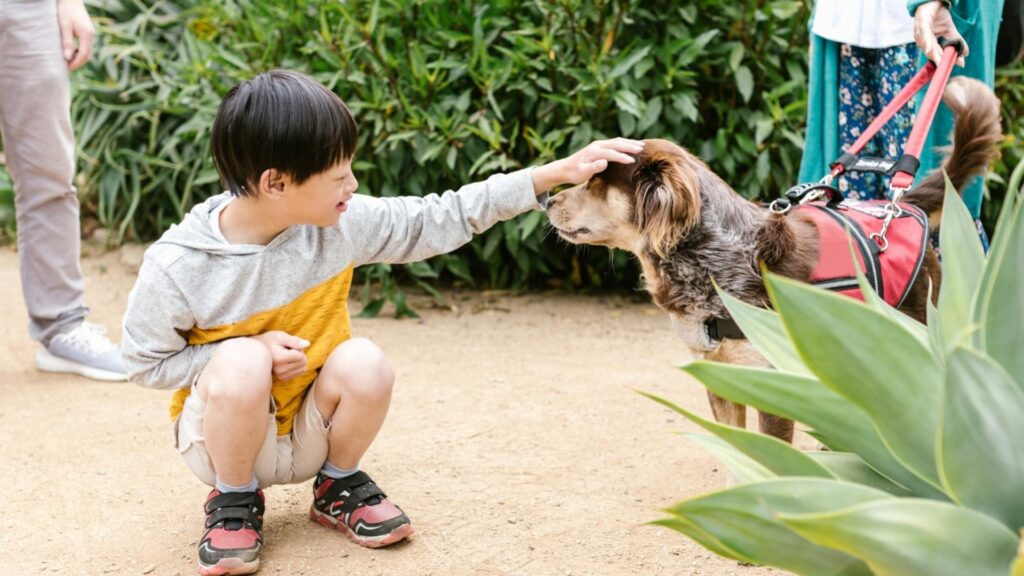
Service dogs are widely recognized for their invaluable skills, assisting individuals with disabilities in everyday tasks and emergencies. But beyond their impressive training and abilities, they offer something even more profound: unconditional love.
Their bond with their human companions goes beyond the duties they perform, as these remarkable dogs provide emotional support, companionship, and an unwavering sense of comfort. In this article, we’ll explore the unique and heartwarming ways service dogs provide their humans with love.
Emotional Support and Stability
For individuals living with physical disabilities, mental health conditions, or sensory impairments, the world can sometimes feel overwhelming. This is where the calming presence of a service dog can make all the difference.
Unlike humans, who may not always know what to say or do in difficult moments, a service dog offers silent, consistent companionship. Their mere presence can lower stress levels and provide a soothing effect, often easing anxiety or emotional distress.
For example, those living with post-traumatic stress disorder (PTSD) often experience panic attacks or flashbacks triggered by various stimuli.
Service dogs are trained to detect signs of distress before they escalate, and they provide physical comfort by leaning into their humans or nudging them, redirecting focus and grounding them in the present moment. This form of love, though subtle, is profound in its impact—it gives individuals the ability to navigate emotional challenges with greater ease.
Nonjudgmental Companionship
One of the most special aspects of the relationship between a service dog and its human is the dog’s nonjudgmental nature. Service dogs do not care about appearances, mistakes, or shortcomings. Their loyalty is steadfast and unconditional.
For many people who live with disabilities or chronic health conditions, societal pressures or misunderstandings can lead to feelings of isolation or inadequacy.
A service dog offers an antidote to this loneliness. They are always there, whether their human is having a great day or struggling through challenges. This unyielding companionship can boost self-esteem and provide a sense of belonging that is vital for mental well-being. The simple act of knowing that their dog will always be by their side—without judgment or expectation—brings a deep sense of comfort and security.
A Constant Source of Affection
The love of a service dog is not just felt in the calm presence they provide; it is often expressed through physical affection. Service dogs frequently seek out moments to connect with their human companions through gentle touches, nuzzles, or even resting their head on their lap. These small gestures can be immensely comforting, providing a tangible reminder that someone—though not human—cares deeply for them.
Scientific studies have shown that the act of petting a dog can release oxytocin, often referred to as the “love hormone,” which is responsible for feelings of trust, bonding, and relaxation. For someone who struggles with anxiety, depression, or other mental health challenges, these moments of affection are more than just sweet—they are essential for emotional regulation.
Facilitating Social Connections
Service dogs also help their human companions feel more connected to the world around them. When people see a service dog, they are often drawn to the dog’s friendly demeanor and their impressive abilities. This can lead to positive social interactions for the human, fostering a sense of connection with others. For individuals who may feel socially isolated due to their condition, this can be a significant benefit.
Service dogs provide their humans with love not only by supporting them emotionally but by helping to bridge the gap between their world and the wider community. Whether it’s through a casual conversation with a passerby or the joy of sharing their experiences with their loyal canine companion, service dogs enhance their humans’ social lives in meaningful ways.
Building Trust and Independence
The bond between a service dog and their human is one of trust. Service dogs are highly trained to perform tasks that can literally save lives—whether it’s guiding a visually impaired person safely across a street, alerting someone to an oncoming seizure, or retrieving medication during a medical emergency. But this trust goes both ways. The human knows they can rely on their dog to be there when it matters most, and the dog trusts their human to care for them, respect their needs, and provide love in return.
This dynamic fosters a deep relationship where love manifests through mutual dependence. For the human, this bond builds confidence and independence, knowing they have a reliable partner who will never let them down. For the dog, their love is expressed through their loyalty and the joy they take in being part of their human’s life.
Conclusion
Service dogs offer more than just practical assistance—they provide an unparalleled form of love. Through emotional support, nonjudgmental companionship, affection, and trust, these remarkable animals help their humans navigate life with greater peace, confidence, and joy. Their love is unconditional, a testament to the deep and lasting bond that can form between a human and their canine companion. It’s no wonder that service dogs are often considered not just helpers, but true members of the family.

